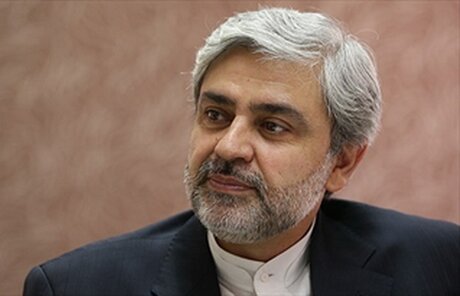TEHRAN - Mohammad Ali Hosseini, the Iranian ambassador to Pakistan, has said that all countries bordering the Persian Gulf are responsible to preserve the historical heritage of this strategic waterway.
“The Persian Gulf is a symbol of civilization, culture, and history that connects the nations of the region. Therefore, now all the countries in the region have a responsibility to preserve the historical heritage of this region in the same historical and original way,” he wrote in an article titled “Persian Gulf: Yesterday, today and tomorrow”.
Following is an excerpt of the article published by the Pakistani newspaper The Nation:
The Persian Gulf is an important and strategic historical gulf. Historically, the shores of the gulf and the rivers that flowed into it have been the site of the first human civilizations. By studying the history of the Persian Gulf, you can go to sea with ancient fishermen; hunt pearls from Qeshm Island, go to Mesopotamia and dig out the ancient inscriptions of Cyrus; listen to historical stories of the atrocities committed by Portuguese and British colonialists on the island of Hormuz, and hear the story of the outbreak of bloody wars, including Iraq’s imposed war on Iran and the so-called Persian Gulf War.
So, for Iranians, the Persian Gulf is not just a sea, but part of history, identity, and national heritage. This gulf is the ancestral home of the Iranians and they will not let foreigners log it without permission. But beyond Iran, the Persian Gulf is a symbol of civilization, culture, and history that connect the nations of the region. Therefore, now all the countries in the region have a responsibility to preserve the historical heritage of this region in the same historical and original way. These countries are not the same in terms of the history of creation and civilization. Some civilizations date back more than 7,000 years, while others do not exceed a few decades; however, the historical character, originality, and dignity of each country requires that it be proud of its resources and not be greedy about the cultural, geographical and ancient resources of others. No country is allowed to create a false identity for itself by distorting history, overturning the facts, and stealing the cultural heritage of others.
The same importance of identical and strategic importance of the Persian Gulf has caused some racist individuals and organizations to use fake names for this gulf in the last few decades in order to be honored by attributing it to them. But researchers, lawyers, historians, and lovers of the Persian Gulf have prevented this with the help of the United Nations. All ancient geographical documents and maps in different languages such as Persian, Arabic, Spanish, etc. have referred to that gulf as the “Persian Gulf”. Thus, the distortion of its name is nothing but the blatant denial of historical truth. The United Nations, citing ancient maps and texts, has been emphasizing the name of the Persian Gulf since 1990 with the issuance of various resolutions and statements. Also, in October 2018, the World Intellectual Property Organization registered the name of the Persian Gulf in an official document. Based on these documents, which stem from international law, no individual, government, or organization can call the Persian Gulf by using any other title.
TAGS


No comments:
Post a Comment